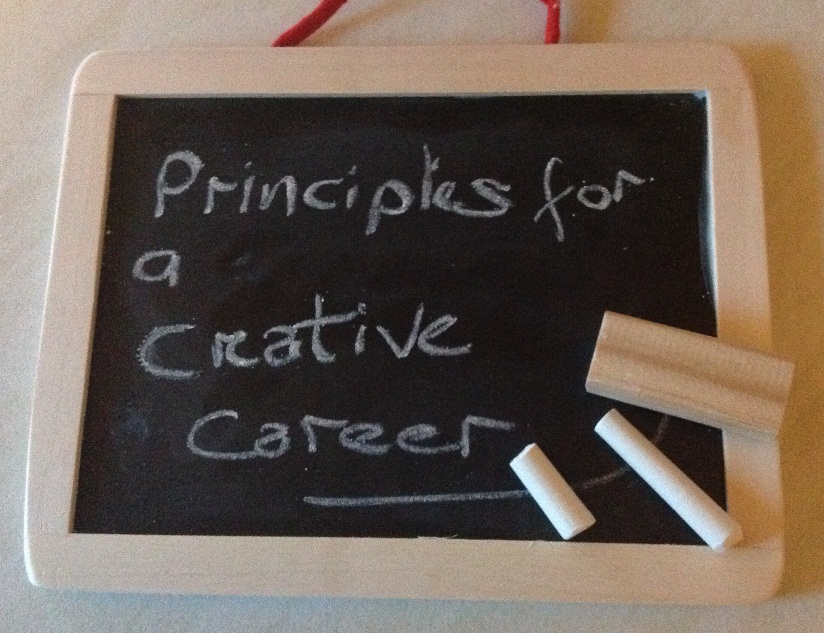
I’ve been blogging for about 10 years. And still, without fail, every time, I struggle to get started. There are always so many ideas floating around in my head, and I want to write about them all!
No less now. What on earth can I write that will be of interest to you lovely Govloop readers? And then, being a bit contrary, I thought, why not start at the end? How I’ve ended up where I am today, here, writing for you. Not a career history as such, more ‘career principles’ that I work (and to an extent, live) by.
(When I started writing I had five principles in mind. But as I thought about them a bit more, they grew into ten! So this will be a blog in two parts.)
1. Stay curious.
I take the time to look up and around me. It helps that I’m really nosy. And I hate to think that I might be missing out on something.
So, I take an interest in what my colleagues are doing. I ask a lot of questions. I read widely. I volunteer to work on tasks that are outside my ‘official remit’. And I love social media – all those interesting people, doing cool stuff and talking about it, all together in the one place, on my computer screen! I follow people in my own field, but also those with different views and interests.
Reaching out and connecting with some of those people on social media has opened up so many opportunities for me that I wouldn’t have had otherwise. Including the opportunity to blog for you on GovLoop!
2. Don’t take yourself too seriously.
An increasing body of research demonstrates that people who have fun at work are more creative, more productive, better decision-makers and they get along better with their co-workers (see for example, Abramis, 1990).
We do important and serious work in government. Of course we do. Doesn’t mean that we can’t have fun while we’re doing it.
It’s perfectly possible to have fun and remain professional. It doesn’t have to be wild and wacky. I try to use (appropriate) humour in everything I do. My workshops are designed to be fun for the participants. I tell (possibly not very good) jokes in meetings. I’ve even been known to dress up (photos available on request). It probably helps that I don’t mind making a fool of myself.
3. Step into your un-comfort zone.
Back in 1908, psychologists Yerkes and Dodson found that a state of relative comfort created a steady level of performance. In order to maximise performance, however, we need a state of relative anxiety—a space where our stress levels are slightly higher than normal. This ‘optimal anxiety’ space is just outside our comfort zone.
Too much anxiety and we’re too stressed to be productive, and our performance drops off sharply. So, it doesn’t have to be dramatic life changing stuff, it’s enough that I give myself a little nudge every now and then. I might volunteer for a task that I know will stretch me. Or I’ll have a play around with a new piece of software. Or I might just take a different route to work.
4. Stop stressing about promotion!
We fixate on promotion because it is something measurable and in turn something that they we can use to compare ourselves against our peers.
But there are aspects of the promotion process that are outside our control. And promotion isn’t really an accurate measure of what we bring to our organisations. Surely, the fulfillment and satisfaction that we get from our work is more important?
It took me a long time to figure this out, but it was quite liberating when I did.
I find satisfaction in my work by pushing myself to expand my skills and by constantly challenging myself. I’ve held roles in multiple functions in lots of different parts of government. I’ve been involved in a variety of tasks and projects inside those functions. So, now I measure myself not against a vertical ladder, but against my own breadth of skills and experience.
5. Play nice.
I am one of the nicest people you are ever likely to meet. If I wasn’t so nice, I might get annoyed that not everyone is as nice as me. And if being nice means that I end up finishing last, well, so be it. The world would be a better place with more nice people, as would our workplaces.
So, these are my version of Google’s 10 things we know to be true. Whenever something doesn’t feel right, I ask myself how I’m trying to apply these principles to my day.
I’ll write about my other five next week. In the meantime, what do you think of these? And what are the principles that you work to?
References
Abramis, D. J. (1990). Play in work: Childish hedonism or adult enthusiasm? American Behavioral Scientist, 33(3), pp. 353-373.
Yerkes, R. M. & Dodson, J. D. (1908). The relation of strength of stimulus to rapidity of babit-formation. Journal of Comparative Neurology and Psychology, 18, pp. 459-482.
Lesley Thomson is part of the GovLoop Featured Blogger program, where we feature blog posts by government voices from all across the country (and world!). To see more Featured Blogger posts, click here.





Great post, Lesley. All of your principles ring true, but I like the first one best (stay curious). Looking forward to the second half.
Thanks Dave!
Lesley, it sounds to me like you are a great People Gardener! Keep on gardening and sowing bountiful seeds!
+1
Thanks Eva. That’s not a term I’ve come across before, but I like it!
I actually have a nice garden – I’m not very sure what I’m doing most of the time, but I like to potter (kind of like the rest of my life :-)) I may pop some pics into a later blog post.
Thank Lesley. A great post.
Cheers Dan!
🙂 Makes sense!